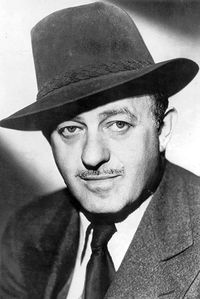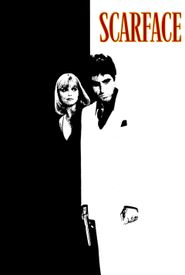Ben Hecht, a renowned writer in both Hollywood and Broadway, earned an Academy Award for best original story for Underworld (1927) at the inaugural Academy Awards in 1929. He was a prolific writer, contributing to the creation of numerous classic films. Throughout his illustrious career, Hecht received five additional Oscar nominations for best writing, winning twice, including for The Scoundrel (1935),a collaboration with his long-time writing partner and friend Charles MacArthur.
Hecht's writing skills were highly sought after by producers, and he was often called upon as a script doctor. His services were in high demand, and he was reportedly paid $10,000 by producer David O. Selznick to hastily revise the script for Gone with the Wind (1939),although he received no credit for his work. In contrast, Sidney Howard won an Oscar for his efforts on the same film.
Born on February 28, 1894, Hecht began his career as a newspaperman in Chicago during the city's competitive heyday. As a reporter for the Chicago Daily News, he wrote the popular column "1001 Afternoons in Chicago" and broke the "Ragged Stranger Murder Case" story, which led to the conviction and execution of Army war hero Carl Wanderer for the murder of his pregnant wife in 1921.
Hecht's experience in the newspaper industry, which he and MacArthur humorously parodied in "The Front Page," proved to be an excellent training ground for a screenwriter. He had to write vivid prose and work quickly, skills that would serve him well in his future endeavors.
In 1926, Hecht received a telegram from friend Herman J. Mankiewicz, who had recently relocated to Hollywood. The message read: "Millions are to be grabbed out here and your only competition is idiots. Don't let this get around." Hecht relocated to Hollywood, ultimately landing at Paramount, where he worked uncredited on the script for Lewis Milestone's adaptation of Ring Lardner's story The New Klondike (1926),starring silent superstar Thomas Meighan.
It was his script for Josef von Sternberg's semilgangster picture Underworld (1927) that brought him widespread recognition. Hecht continued to thrive in the film industry until the 1960s, earning a reputation as one of the most famous and highest-paid screenwriters of his time.
As a playwright, novelist, and short-story writer, Hecht often belittled writing for the movies, yet it is for films such as Scarface (1932),Nothing Sacred (1937),and The Front Page (1931),based on his play of the same name, that he is most remembered.
Hecht passed away on April 18, 1964, in New York City due to thrombosis, at the age of 70.
































































































